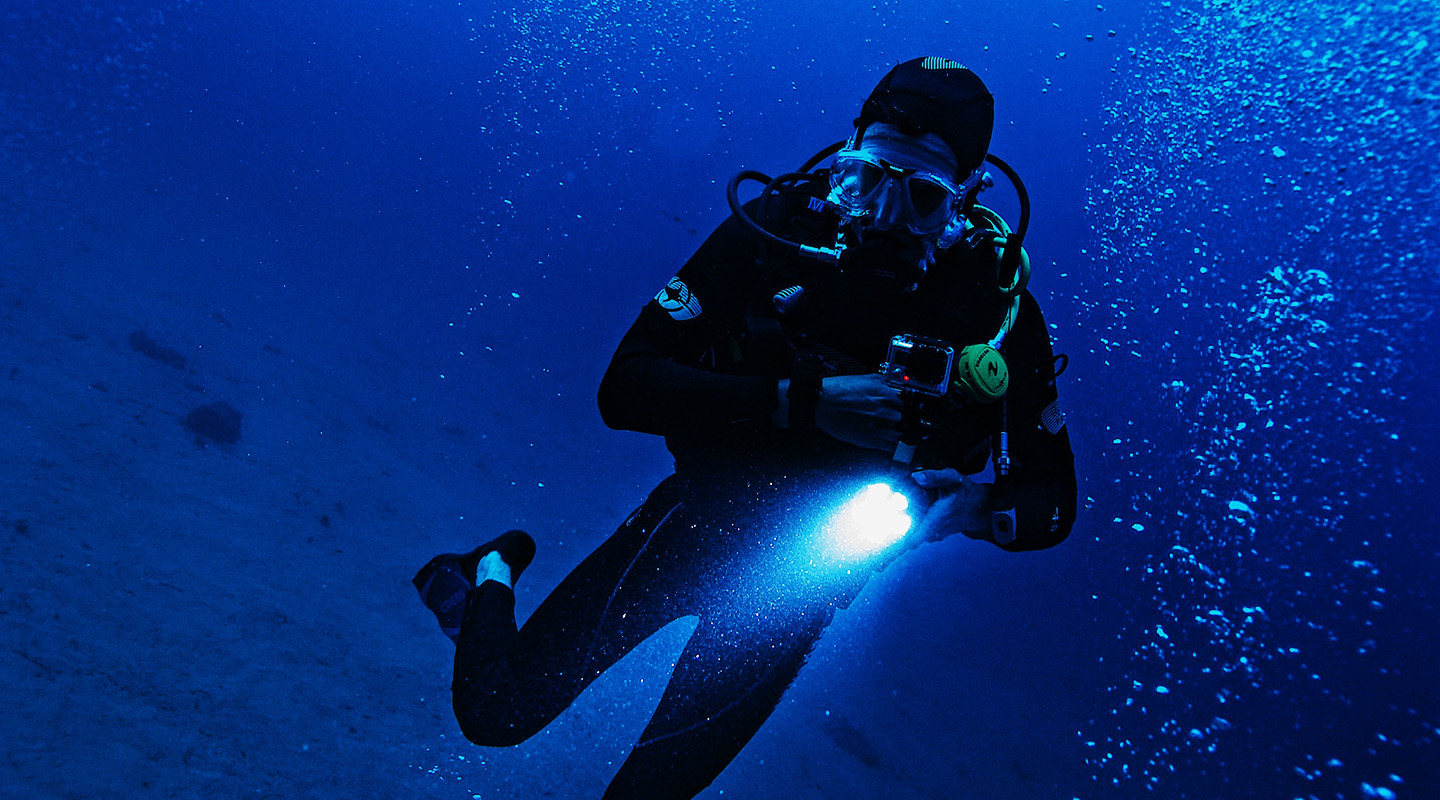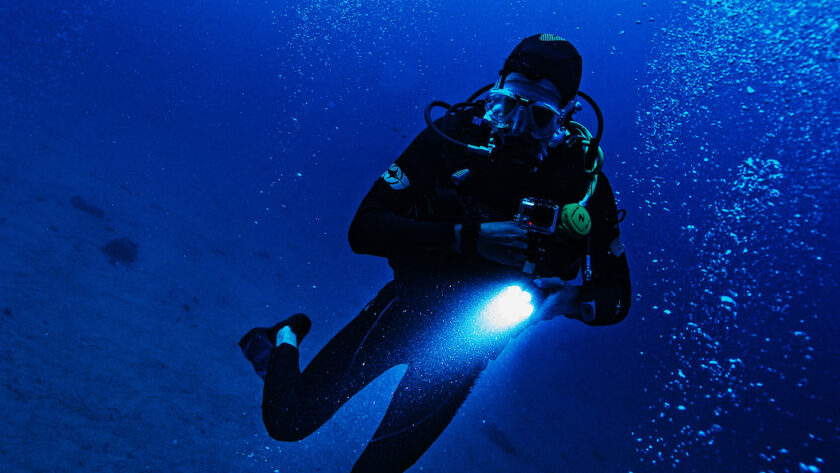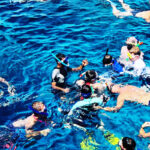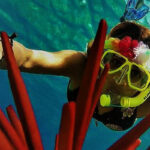Are you ready to embark on an underwater adventure? In this article, we’ll explore the exhilarating world of snorkeling and scuba diving and help you decide which one suits you best. Whether you’re a novice exploring the colorful reefs or an experienced diver exploring mysterious shipwrecks, both activities provide unique opportunities to witness the awe-inspiring beauty of the ocean. So grab your fins and join us as we uncover the ultimate experience of snorkeling vs scuba diving!
Overview
Introduction to snorkeling and scuba diving
Are you looking to explore the underwater world and have an unforgettable aquatic adventure? Snorkeling and scuba diving are two popular options that allow you to immerse yourself in the wonders beneath the surface. Whether you are a beginner or an experienced water enthusiast, both activities offer unique experiences and opportunities for exploration. In this comprehensive article, we will compare snorkeling and scuba diving, discussing the benefits and drawbacks of each. We will also explore the factors to consider when choosing between the two, helping you make an informed decision for your next underwater escapade.
Benefits and drawbacks of each
Snorkeling and scuba diving both have their own set of advantages and disadvantages. Snorkeling, which requires minimal training and equipment, provides an excellent introduction to the underwater world. It allows you to observe marine life from the surface, providing a breathtaking view of coral reefs, colorful fish, and other underwater wonders. On the other hand, scuba diving offers a more immersive experience, allowing you to explore deeper depths and encounter marine creatures up close. With scuba diving, you have the opportunity to navigate through underwater landscapes, delve into wrecks, and discover hidden treasures. However, scuba diving requires more extensive training, equipment, and certifications compared to snorkeling.
Factors to consider when choosing between snorkeling and scuba diving
When deciding between snorkeling and scuba diving, several factors should be considered. Firstly, your comfort level in the water plays a significant role. If you are a beginner or feel uneasy about diving deep, snorkeling may be the perfect choice. It offers a less intimidating experience, allowing you to enjoy the underwater world at your own pace. Secondly, your budget and time constraints should be taken into account. Snorkeling is generally more affordable as it involves minimal equipment and training costs. Scuba diving, on the other hand, requires investment in specialized gear, training courses, and certification fees. Lastly, your desire for exploration and interaction with marine life might influence your decision. Snorkeling provides a great opportunity to observe marine animals from the surface, while scuba diving allows for a more immersive and intimate encounter with underwater creatures.
Equipment
Snorkeling equipment
To fully enjoy snorkeling, it is important to have the right equipment. The essential gear includes a mask, snorkel, and fins. A well-fitted mask with a silicone skirt will provide a comfortable and watertight seal, ensuring clear vision underwater. The snorkel, a curved tube with a mouthpiece, allows you to breathe while your face is submerged. Lastly, fins enhance your mobility in the water, providing propulsion and reducing fatigue. Optional accessories such as a wetsuit, rash guard, and buoyancy aids can also enhance your snorkeling experience.
Scuba diving equipment
Scuba diving requires more specialized equipment compared to snorkeling. The key components of scuba diving gear include a regulator, buoyancy compensator device (BCD), dive computer, wetsuit or drysuit, mask, fins, and a tank of compressed air. The regulator allows you to breathe underwater by delivering air from the tank while the BCD enables you to maintain neutral buoyancy during the dive. The dive computer provides vital information such as depth and bottom time, ensuring a safe and controlled dive. It is crucial to have well-maintained and properly fitted scuba diving equipment to ensure your safety and comfort throughout the dive.
Differences in gear and functionality
The gear used in snorkeling and scuba diving differs in terms of functionality and complexity. Snorkeling equipment is relatively simple and lightweight, making it easy to transport and use. The focus is primarily on comfort and ease of breathing while observing the underwater world from the surface. On the other hand, scuba diving gear is designed to allow you to explore greater depths and stay underwater for extended periods. The equipment is more sophisticated, with advanced features to monitor various dive parameters and ensure your safety. Additionally, scuba gear is typically bulkier and heavier, requiring more specialized training and experience to operate effectively.
Skills and Training
Required skills for snorkeling
Snorkeling does not require extensive training or specific skills. However, it is important to be comfortable in the water and have some basic swimming abilities. Familiarity with snorkeling techniques such as clearing your snorkel and adjusting your mask is helpful for an enjoyable experience. Being able to stay calm and relaxed in the water also enhances your snorkeling experience.
Required skills for scuba diving
Scuba diving, on the other hand, involves acquiring specific skills and knowledge to ensure safe and enjoyable dives. To become a certified scuba diver, you need to complete a training program provided by a reputable diving agency. These training programs typically include classroom sessions, pool practice, and open water dives. Skills taught during scuba diving training include equalizing pressure in your ears, clearing your mask underwater, buoyancy control, and emergency procedures. Proficiency in these skills is vital for a safe and confident scuba diving experience.
Training and certifications for scuba diving
Scuba diving certifications are offered by recognized diving agencies worldwide, such as PADI (Professional Association of Diving Instructors) and SSI (Scuba Schools International). These certifications are internationally recognized and indicate a diver’s level of competency. The most common entry-level certification is the Open Water Diver certification, which allows you to dive to a maximum depth of 60 feet (18 meters) with a certified buddy. As you gain more experience and training, you can progress to advanced certifications that enable you to explore deeper depths, engage in night diving, and specialize in specific diving activities such as wreck diving or underwater photography.
Training options for beginners
For beginners interested in scuba diving, there are various options available. Many dive centers offer Discover Scuba Diving programs, which provide a taste of scuba diving under the direct supervision of an instructor. These programs allow you to experience scuba diving in a controlled environment, such as a pool, before deciding to pursue certification. Alternatively, you can enroll in an entry-level scuba diving course, where you will receive comprehensive training and become a certified diver upon successful completion. Online courses are also available, allowing you to complete the theoretical portion of the training at your own pace before participating in practical sessions.
Accessibility
Accessibility of snorkeling spots
One of the advantages of snorkeling is its accessibility. Snorkeling spots can be found in various locations worldwide, ranging from pristine tropical beaches to vibrant coral reefs. Many popular snorkeling destinations offer easily accessible entry points from the shore, making it convenient for individuals of all ages and abilities. There are also guided snorkeling tours available, where experienced guides provide insights about the marine life and lead you to the best areas for snorkeling.
Accessibility of scuba diving locations
Scuba diving locations can vary in terms of accessibility. Some dive sites may require boat transportation to reach, while others can be accessed directly from the shore. Boat dives often provide access to more remote and spectacular diving spots, including reefs, walls, and shipwrecks located further offshore. Shore dives, on the other hand, allow for more flexibility and independence as you can explore at your own pace. While scuba diving offers the opportunity to reach deeper and more secluded areas, it may require more logistical planning and coordination compared to snorkeling.
Factors influencing accessibility
Several factors can influence the accessibility of snorkeling and scuba diving locations. The geographical location plays a significant role, as coastal regions with warm waters and rich biodiversity tend to offer a multitude of both snorkeling and diving opportunities. Additionally, the presence of adequate infrastructure, such as snorkeling platforms, dive centers, and boat rentals, can enhance the accessibility of these activities. It is important to consider factors such as travel distance, transportation options, and local regulations when planning your snorkeling or scuba diving adventure.
Experience and Exploration
Snorkeling experience
Snorkeling provides a unique and immersive experience, allowing you to observe the vibrant marine life from the surface. With just a mask, snorkel, and fins, you can leisurely explore shallow waters and admire the underwater scenery. Snorkeling offers a sense of freedom and tranquility as you glide through the water, observing schools of fish, colorful coral formations, and other fascinating creatures. It is a great activity for nature enthusiasts, families, and those who want to enjoy a more relaxed and casual exploration of the underwater world.
Scuba diving experience
Scuba diving offers a whole new world of adventure beneath the surface. With the ability to breathe underwater and explore greater depths, scuba diving allows for a more immersive and intimate experience with marine life. Imagine swimming alongside majestic sea turtles, encountering curious dolphins, or exploring historical shipwrecks. Scuba diving provides a sense of weightlessness and freedom as you navigate through an alien underwater environment. It is an exhilarating activity that offers a unique opportunity to witness the beauty and diversity of the ocean firsthand.
Opportunities for marine life encounters
Both snorkeling and scuba diving provide remarkable opportunities for marine life encounters. In snorkeling, you can observe marine creatures from the surface, such as colorful fish, sea turtles, and even friendly dolphins if you’re lucky. The calm and quiet presence of snorkelers often attracts curious marine animals, providing memorable encounters. Scuba diving, on the other hand, allows for more intimate interactions with marine life. Divers can get up close and personal with larger marine creatures, such as sharks, rays, and whales, as well as explore intricate coral reefs bustling with activity. Whether you choose to snorkel or scuba dive, you are bound to create unforgettable memories with marine creatures in their natural habitats.
Exploration of underwater environments
When it comes to exploring underwater environments, scuba diving takes the crown. With proper training and certification, scuba divers can descend to greater depths and dive for longer periods, bringing them face-to-face with mesmerizing underwater landscapes. Divers have the opportunity to explore intricate coral reefs, dramatic drop-offs, underwater caves, and awe-inspiring shipwrecks. The sense of awe and discovery while exploring these hidden realms is unmatched. Snorkeling, while limited to the surface, still offers incredible views of coral formations and marine life, but lacks the depth and range that scuba diving provides.

Depth and Duration
Depth limitations in snorkeling
In snorkeling, your exploration is limited to the surface of the water. As a snorkeler, you can typically reach depths of up to 10-15 feet (3-4.5 meters), depending on your lung capacity and comfort level. This depth allows you to observe marine life and vibrant coral formations in shallow waters. However, snorkeling restricts your ability to fully immerse yourself in the underwater environment and explore the deeper realms of the ocean.
Exploring greater depths with scuba diving
Scuba diving opens up a whole new world of possibilities in terms of depth exploration. Depending on your diving certification, you can dive to depths ranging from 60 feet (18 meters) for an Open Water Diver certification, up to 130 feet (40 meters) or even deeper for more advanced certifications. The ability to venture into deeper waters allows scuba divers to experience unique marine ecosystems, underwater landscapes, and a diverse range of marine species that thrive at different depths. Scuba diving enables you to explore parts of the ocean that are unattainable for snorkelers, unraveling the mysteries of the deep.
Duration of snorkeling versus scuba diving trips
The duration of snorkeling and scuba diving trips can vary depending on personal preferences and logistics. Snorkeling sessions are typically shorter in duration, ranging from a couple of hours to half a day. This makes snorkeling an ideal activity for those looking to have a refreshing dip in the water or fit an aquatic adventure into a day trip. Scuba diving trips, on the other hand, usually involve longer durations to accommodate multiple dives and surface intervals for decompression. A typical scuba diving excursion can span a full day or even multiple days, providing ample time to explore various dive sites and fully immerse yourself in the underwater realm.
Safety
Safety precautions in snorkeling
While snorkeling may seem relatively safe, it is still essential to take appropriate safety precautions. Before entering the water, ensure that you are confident in your swimming abilities and are familiar with basic water safety guidelines. Always snorkel with a buddy and maintain visual contact to ensure help is readily available if needed. Be cautious of changing weather conditions, currents, or strong waves that can affect your safety in the water. It is also important to be aware of marine life and their behaviors, respecting their natural habitat and keeping a safe distance.
Safety considerations in scuba diving
Scuba diving is an adventure activity that requires careful attention to safety measures. As a scuba diver, always prioritize safety and follow the guidelines provided during your training. Proper dive planning, equipment checks, and buddy communication are crucial for a safe dive. Special attention should be given to monitoring depth, bottom time, and the air supply in your tank. Being aware of your surroundings, including potential hazards such as strong currents or marine animals, is vital for your well-being. Regular maintenance and inspection of your scuba diving equipment are also essential for ensuring its reliability and functionality underwater.
Risks and potential dangers
Both snorkeling and scuba diving present inherent risks that should be taken seriously. Snorkeling carries a lower level of risk due to its simplicity and surface-based exploration. However, factors such as fatigue, overexposure to the sun, and encountering marine creatures that may pose a threat could lead to potential dangers. With scuba diving, there are additional risks associated with breathing compressed air at depth, such as decompression sickness, nitrogen narcosis, and barotrauma. These risks can be minimized through proper training, following safety protocols, and diving within your certification limits. It is important to be aware of the potential dangers and take the necessary precautions to ensure a safe and enjoyable experience.
Cost
Cost comparison of snorkeling and scuba diving
When comparing the costs of snorkeling and scuba diving, snorkeling generally proves to be a more affordable option. Snorkeling requires minimal equipment, with the essential gear being relatively inexpensive and widely available for purchase or rental. Additionally, many beaches and resorts offer free or low-cost snorkeling opportunities, making it accessible to individuals on various budgets. On the other hand, scuba diving involves more significant expenses. The cost of scuba diving gear, certification courses, dive trips, and other related expenses can add up. However, it is important to note that scuba diving offers a more immersive and in-depth experience, justifying the higher cost for those seeking a more specialized underwater adventure.
Equipment and rental expenses
Snorkeling equipment is relatively inexpensive, with a basic set of mask, snorkel, and fins available at affordable prices. These items are also widely available for rent at beaches, resorts, and dive shops, providing flexibility for those who prefer not to invest in their own gear. Scuba diving equipment, on the other hand, is more costly due to its specialized nature. The essential diving gear, such as regulator, BCD, and dive computer, require a significant investment. However, many divers choose to rent equipment from dive centers or resorts, particularly if they do not dive frequently. It is important to consider the cost of renting versus purchasing scuba gear based on your diving frequency and long-term plans.
Additional costs for scuba diving certifications
Obtaining scuba diving certifications comes with additional costs. The price of entry-level certifications, such as the Open Water Diver, typically includes the training materials, instruction, and certification fees. However, it is important to budget for additional costs such as dive site fees, equipment rental, and transportation to dive locations. As you progress to more advanced certifications, additional training fees and specialized course materials may apply. While scuba diving certifications come at a cost, they provide valuable knowledge and skills that enhance your safety, enjoyment, and opportunities for exploration in the underwater world.
Environmental Impact
Environmental considerations in snorkeling
Snorkeling, when practiced responsibly, generally has a minimal environmental impact. However, it is crucial to be mindful of your actions to protect the fragile marine ecosystems. Do not touch or remove marine life, including coral, as it can lead to irreversible damage. Avoid standing or kicking coral formations to prevent disruption and fragmentation. Be aware of the sunscreen you use, as certain chemicals can harm coral reefs and other marine organisms. Choosing reef-safe sunscreen or wearing protective clothing is a good alternative. Leave no trace, disposing of any trash properly, and respect the natural habitat of marine creatures.
Impact of scuba diving on underwater ecosystems
Scuba diving, if not conducted responsibly, can have more significant impacts on underwater ecosystems. Divers should adhere to the principles of buoyancy control to avoid contact with fragile coral formations and other marine life. Techniques such as proper finning and maintaining a horizontal trim during the dive help minimize damage to the environment. Divers should also avoid touching or feeding marine creatures, as it disrupts their natural behaviors and can have long-lasting negative effects. Environmental awareness and responsible diving practices, such as participating in conservation initiatives and adhering to local regulations, are essential to protect the precious underwater ecosystems for future generations.
Sustainable diving practices
Both snorkeling and scuba diving communities have recognized the importance of sustainable practices in preserving marine environments. Dive centers and organizations worldwide promote responsible diving practices, including reef conservation programs, the use of eco-friendly products, and implementing reef restoration initiatives. It is crucial for divers and snorkelers to support these efforts by choosing ethical operators, minimizing the use of single-use plastics, and spreading awareness about environmental issues. By adopting sustainable diving practices, we can contribute to the preservation of underwater ecosystems and ensure that future generations can continue to enjoy these incredible natural wonders.

Conclusion
Personal preferences and goals
Choosing between snorkeling and scuba diving ultimately depends on your personal preferences, goals, and comfort level in the water. If you are seeking a more casual and gentle exploration of the underwater world, snorkeling offers a great introduction with its simplicity and accessibility. It is an excellent choice for individuals of all ages and abilities, providing an opportunity to observe marine life from the surface. On the other hand, if you crave a deeper and more immersive experience, scuba diving allows for exploration at greater depths and opens up a wide range of underwater adventures. With the proper training, scuba diving offers the opportunity to witness breathtaking marine ecosystems and encounter a diverse array of underwater creatures.
Final thoughts on snorkeling vs scuba diving
Snorkeling and scuba diving both bring the ocean to life, providing incredible opportunities for adventure and connection with the natural world. Whether you choose to snorkel or scuba dive, remember to prioritize safety, respect the marine environment, and embrace the awe-inspiring wonders that await beneath the surface. Each option offers its own unique experiences, and you can always try both to get the best of both worlds. So, grab your mask, snorkel, and fins, or gear up in scuba diving equipment – whichever you choose, get ready to uncover the ultimate experience of exploring the underwater realm!




